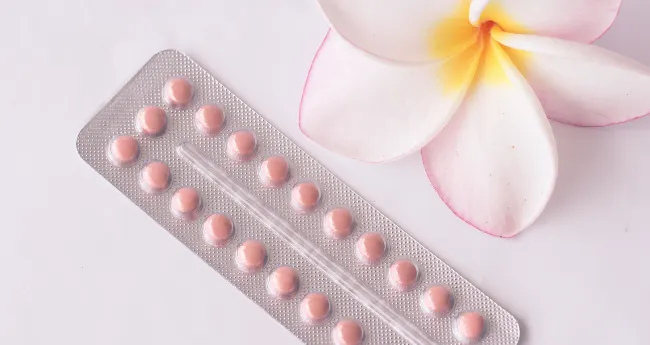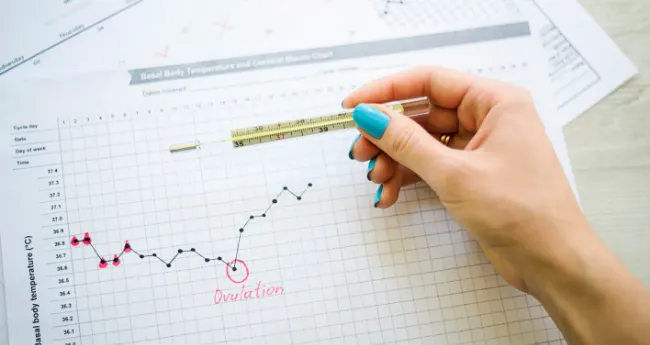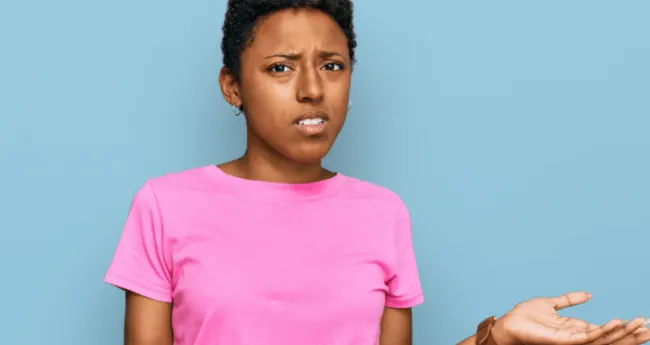Can you ovulate and get pregnant without having your period?

Your period marks the end of your last menstrual cycle. So basically, the progression is such that after ovulation occurs, if one does not get pregnant, your uterus sheds its inner lining that had thickened. So, if you’re wondering, ‘can you ovulate without a period?’, many may naturally assume the answer to be no. However, although unlikely, it is possible to ovulate without having a period.
Moreover, not getting periods is a larger issue that should be investigated. There could be many reasons that could lead to you not getting periods – from breastfeeding, and being underweight, to medications, birth control, and more. Let us understand them as well as how you could be ovulating, but not getting a period.
Your period and ovulation
When you get your period, it assures you that your body’s reproductive system is functioning and doing its job of preparing for a pregnancy. Before we try to understand the mechanisms of whether you could be ovulating but not getting a period or whether you can get pregnant without periods, let us first understand the basic functioning of the menstrual cycle.
- It begins with specific hormones instructing your ovaries to develop an egg. This happens somewhere at the start of your monthly cycle. This egg is developed inside a follicle, which resembles a tiny bubble.
- Next, for around 12 to 14 days, certain hormones stimulate the growth of this egg until it matures.
- Then, at around day 14, this follicle opens up and the egg is released. This function is known as ovulation. The window for the egg to be fertilised is only about 12 to 24 hours.
- After ovulation, during the next 10 days of your cycle, which is approximately days 15 to 25, the hormone progesterone makes your uterus thicken its lining, in preparation for a possible pregnancy.
- If you have intercourse during ovulation or on the days leading up to it, the egg could get fertilised. Also, if you have intercourse even the day after ovulation, it could lead to conception. This is because sperm can survive in the female reproductive system for up to five days.
During this period you have two possible scenarios:
- The first is conception, wherein an embryo would implant itself into the uterine lining. Your body, under the instruction of certain hormones, will then go in preparation mode to nurture a pregnancy.
- The other possibility is that you didn’t conceive. If this happens, the hormone progesterone will signal the endometrium to shed itself. This shedding is your period.
Once the shedding is complete, your body starts preparing for the next cycle by releasing hormones. So, your period actually marks the end of your cycle.

In order to manage your periods, use quality period products such as Always sanitary pads. These are thoughtfully designed, comfortable and offer effective protection. For instance, try the Always Soft Pads. They are flexible, well-fitting and are designed with a soft cover that is gentle on your skin.
If tampons meet your period protection needs better, then we suggest exploring Always’ Tampax which are innovatively designed to offer you the best protection and safety, no matter the flow. Try the Tampax Cardboard tampons which are equipped with quick-absorption channels. These also come with a cardboard applicator to assure you leak-free period protection for up to eight hours.
Can you ovulate without a period?
Many women also wonder, ‘can you get pregnant without periods?’ But there is no straight answer to this question because you could ovulate without a period. It is a rarity, yet a possibility.
For most women, if you don’t get your regular periods at all, you’re most likely not ovulating.
However, if your periods have been irregular, then your ovulation too is likely to be irregular. But you would still be ovulating.
We’ve understood how your period marks the end of one cycle. In an ideal situation, if ovulation occurs and the egg is not fertilised, you should get your period. But what if you’re not having regular cycles? There is a chance that you could suddenly start a menstrual cycle, which includes ovulation.
Possible reasons for not getting your period
Here are some of the most common reasons why women don’t get their period at all or have irregular cycles.
- Pregnancy – For those who have always had regular periods, and they suddenly stopped getting their period, pregnancy is a strong possibility. You can get an at-home pregnancy test kit to check and a follow up with a doctor for confirmation.
- Breastfeeding – If you are breastfeeding exclusively, it can prevent your periods. If you want to know how long this no-period phase lasts, that would depend on how often you are breastfeeding and your body.
- Birth Control – Certain types of birth control can stop your periods. If you have questions about the effects of these forms of birth control, you should speak to a doctor about it.

- Other Medication – Other than birth control, some other types of medication too can make your periods stop. These include certain psychiatric drugs, chemotherapy, allergy medications, and blood pressure pills among others.
- Obesity – Many women who are obese face irregularities in their cycle. For some, it can even completely stop their periods. Managing your weight is the best way to try and regulate your cycle.
- Lack of body fat – Some women who are underweight also have issues with having regular periods. The issue is not exactly your weight, for you could fall under the correct category as per your body mass index. It is the lack of fat in your body. Not having sufficient amounts of fat impacts your reproductive cycle.
- Stress – A major contributor to irregular menstrual cycles is stress. It can lead to a missed period or two.
- Polycystic ovarian syndrome (PCOS) - This is a common cause of infertility in women. Irregular or absent periods is a common symptom of PCOS.
- Uterine Problems – Certain issues with the uterus such as structural problems or uterine scars can cause your periods to be irregular or stop completely.
- Menopause – When middle aged women experience missed periods, their first assumption is that they’ve reached menopause. While, it is a fact that early menopause is a possibility but unless you are 45 years old or older, it’s unlikely that menopause is a cause.

If you’re trying to get pregnant with irregular menstrual cycles, it is important to know when you’re ovulating. Consider tracking your ovulation using a good ovulation tracker such as the Always Ovulation Calendar.
Takeaway
We’ve seen how it is possible, although rare, to ovulate without a period. This is more likely to happen for those who face menstrual irregularities. If you want to get pregnant and aren’t getting your periods regularly, you must consult a doctor to look into the cause of it. On the other hand, if you want to avoid pregnancy, don’t rely on irregular cycles or not getting your period as a way of preventing pregnancy.
Keep a track of your ovulation period with Always Ovulation Calculator and Period Calculator.
Disclaimer:
Please note the date of last review or update on all articles. No content on this site, regardless of date, should ever be used as a substitute for direct medical advice, diagnosis or treatment from your doctor or other qualified clinician. Always is committed to ensuring that all of our products meet rigorous safety standards; Always pads prioritize safety, protection and comfort of its consumers.




